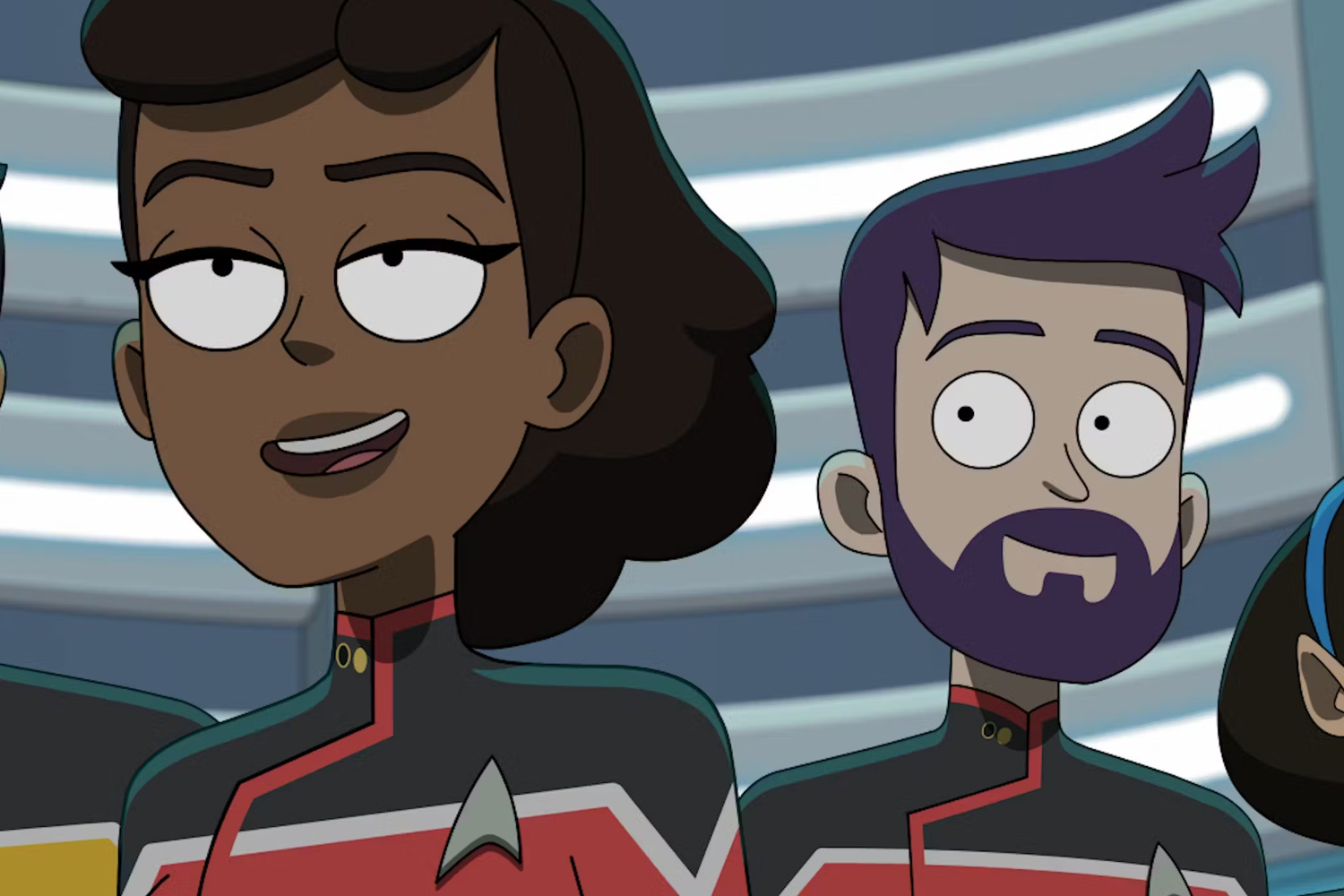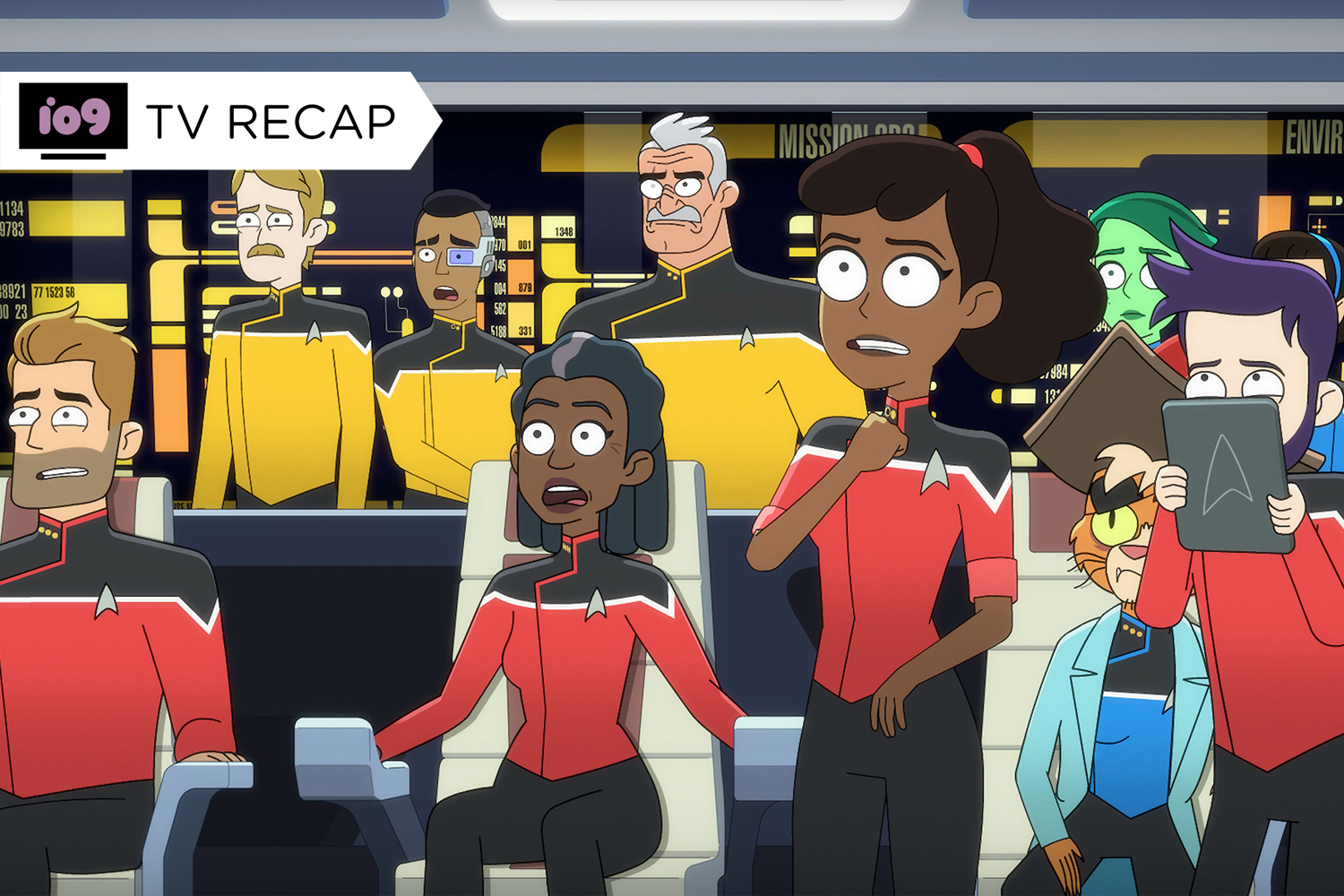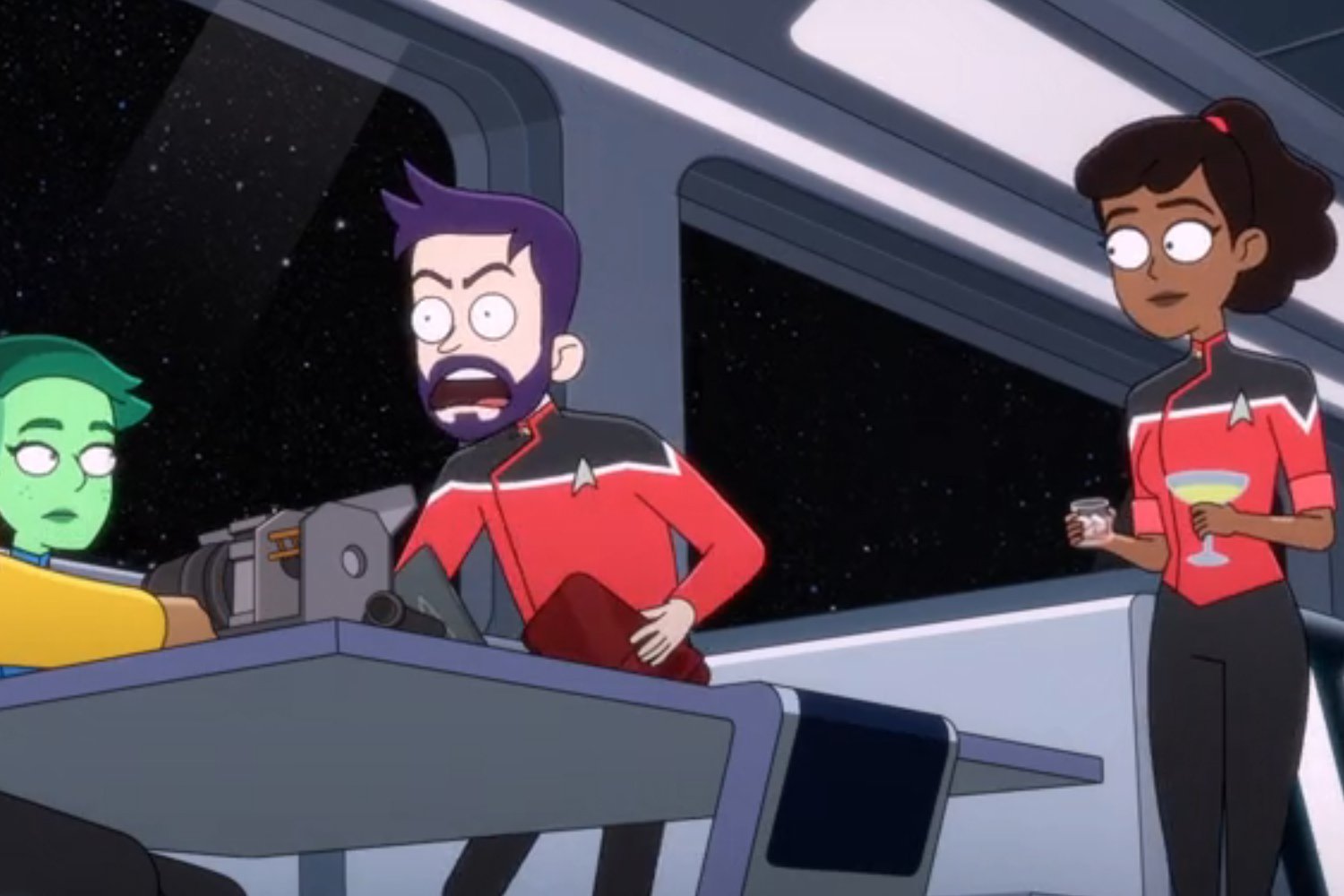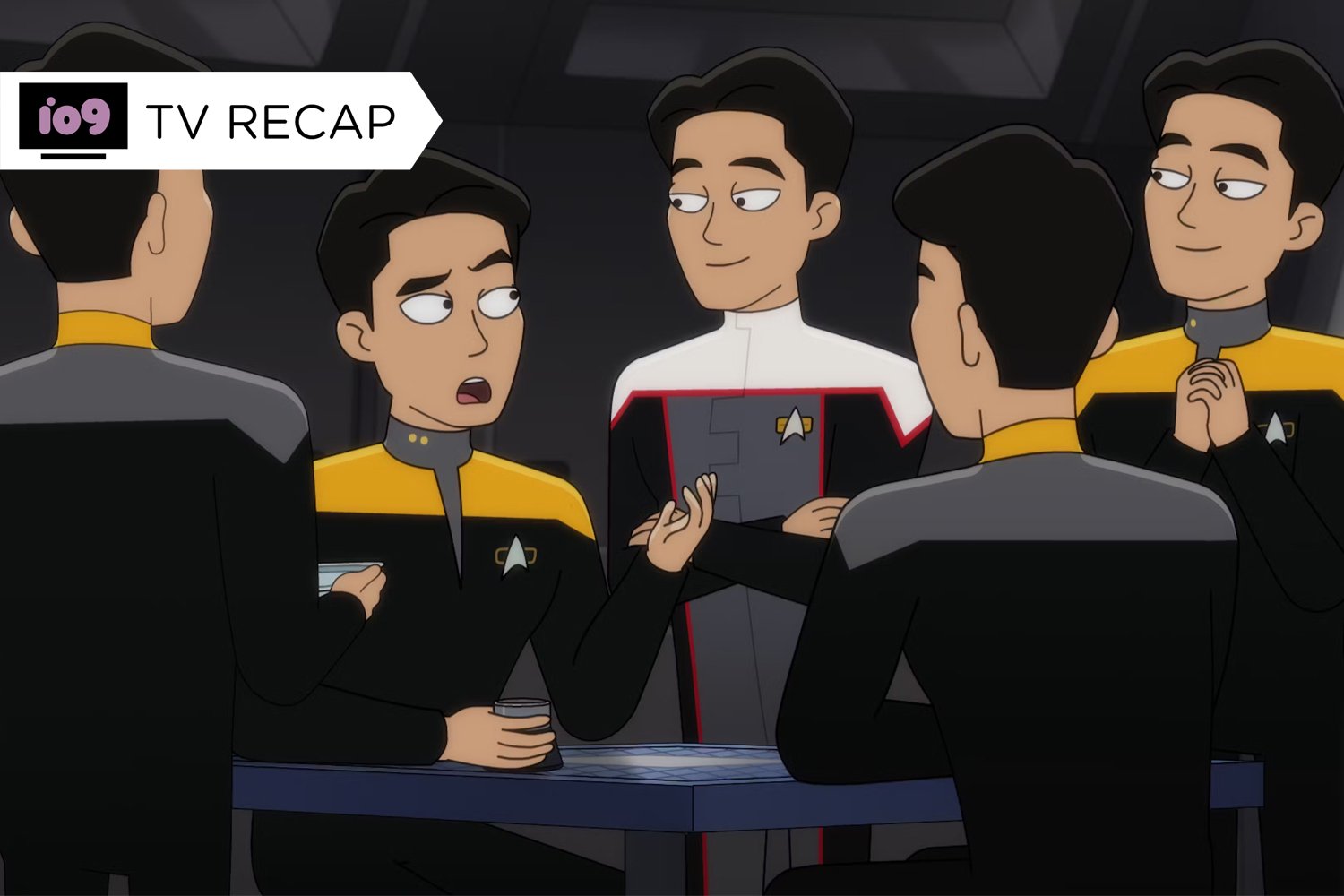So far, Star Trek: Lower Decks’ fondness for sending up the longest history of Trek tropes has largely stuck to the series’ television roots, poking and prodding at cyclical story ideas and the legacy of the franchise’s usual home. But this week’s episode finally sets its sights bigger on Star Trek’s uneven cinema side, and it goes big in the best way.

At first, you might think that “Crisis Point” is going to be a riff on Star Trek’s tried and tested “holodeck gone wrong” storyline, something the show itself has already briefly tackled. After a tense away mission spills out into a full-on argument (and an accidental planetary civil war) with her mother, Mariner finds herself fleeing her mandated Starfleet therapy sessions to bum about on the holodeck with her friends. But when Boimler tries to swap the Lower Deckers’ skeet-shoot with Da Vinci for a distressingly accurate (and privacy-invading) replica of the Cerritos to prepare for an upcoming interview, Mariner’s frustrations with her mother boil over. She keelhauls Tendi and Rutherford into staging a takeover of Boimler’s program to re-write it as “Crisis Point: The Rise of Vindicta,” a suitably cheesy action epic where Mariner plays the villain. You see? Therapy!
So yes, the episode is kind of a riff on the typical Trek holodeck adventure. But what it’s actually pastiching through Mariner’s programming insubordination is Star Trek’s legacy at the box office, something that hasn’t really been brought up on the show so far. That’s probably why Mariner’s hastily rewritten program feels like a gleefully triumphant rundown of the sorts of nonsense Star Trek only allows itself to get up to when Paramount throws a movie budget at it. It’s like a child gorging on sweets, eager to poke and prod at as many tropes as it can while rushing through its runtime.

Star Trek’s cinematic indulgences are all over the story, visually and thematically. Everything’s lit a little more dramatically in static, wide-angled scenes replete with intense close-ups and jaunty framing. You’ve got film grain and black-barred widescreen aspect ratios, and enough lens flare to bring a tear to J.J. Abrams’ eye. The soundtrack becomes a brass-heavy, Michael Giacchino-esque triumphant blare of a decidedly more bombastic version of the Lower Decks theme. All the characters, Mariner’s villainous turn as the titular Vindicta aside, feel true to their usual selves, but larger than life as if this was meant to be the first time some people might have interacted with them, like they’d gone to the movies on a whim and hadn’t kept up with the TV show.
All that’s even before you get to the frankly hilarious checklist of Trek movie tropes we get to see play out. Gorgeous, hilariously overlong panning shots of the main starship as the crew takes a shuttle to board it? Check. Completely unnecessary on-location extreme sports-vehicle scene, just because you’ve got the budget for it? Check. Mariner’s villain Vindicta, played like a hokey mashup between the vengeance-seeking of a Khan (or two) and the sort of “I know everything about you and am the perfect foil” persona of a Shinzon? Very check. Suddenly incredibly gory levels of action, like someone finally found the full disintegration blast in their effects program and wanted to use nothing else? Check, check, and check, with a big shoutout to Shaxs screaming the line “When you get to hell, tell the pah-wraiths that Shaxs sent ya!” while firing a truly comically massive phaser cannon.
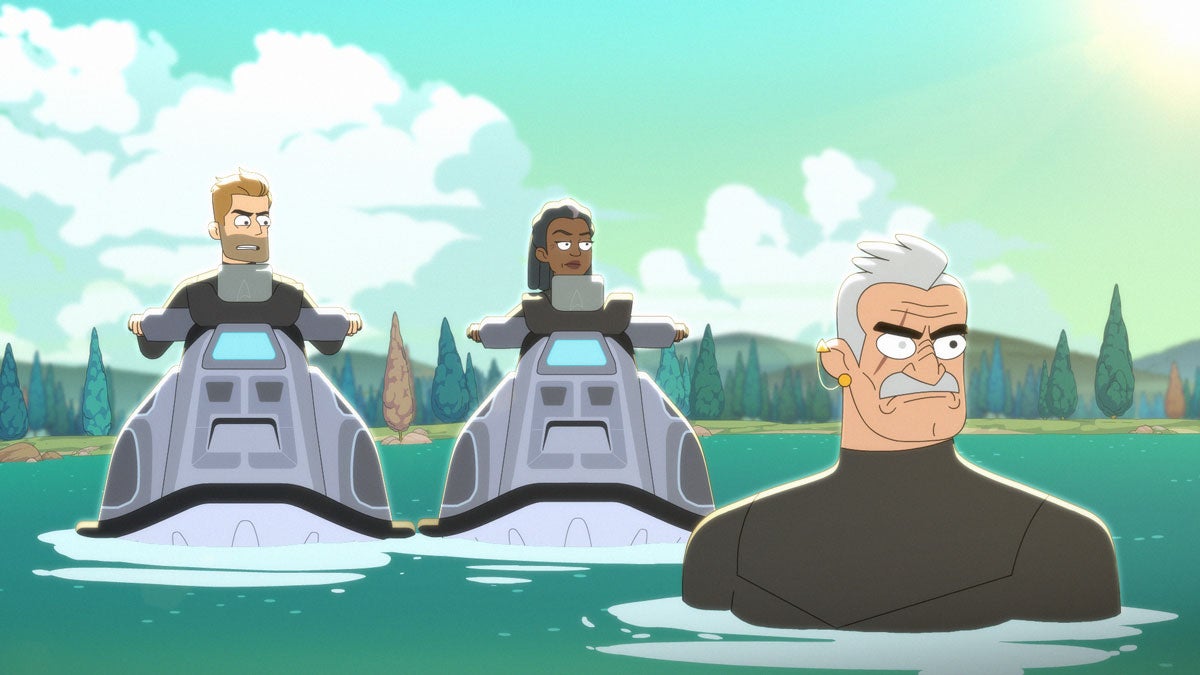
Hell, they even get to crash land and self-destruct the damn ship. With a kind of saucer separation in the process (does it still count if it’s done by force?)! It’s all pitch-perfect, fun as hell, and honestly? Maybe the actual best Star Trek movie in years, even if it is only 25 minutes long.
But for all this expected (and comedically spot-on) trope-prodding, it also can’t be understated just how much “Crisis Point” also happens to be Lower Decks at its most visually outstanding. Even if it’s doing so to poke fun at the Trek movies, everything in this episode is kicked up another level. The extra eye candy, whether it’s the lens flares or the film grain, is to the point that it really does feel like this is the movie-budget version of a TV series. The extensive action offers a dizzyingly exciting array of knockout phaser-fights and brawls that sit comfortably alongside the charmingly goofy highs of Kirk vs. the Gorn or the Enterprise fending off the Borg in First Contact.
Even the smallest moments of character interaction or expression feel like animators at Titmouse going above and beyond to really sell them, the apex of the season’s major emotional arc. Just like Star Trek can only really get away with looking like this when it breaks out a blockbuster budget, Lower Decks can’t look like this every week—but it picked a hell of a week and excuse to do so. What makes this episode the absolute highlight of Lower Decks’ season so far is that it does all that as well as finally delivering the emotional climax to its biggest character arc in Mariner.

In the end, what has always mattered the most in Lower Decks—more than its continued ability to just absolutely nail the franchise it’s a part of with an earnest, sincere love—is that the character work, for Mariner at least, has remained the show’s true strength. All the explosions and 16:9 aspect ratio gags in the world wouldn’t have hit anywhere near as well if not for her place at the heart of the show. It’s great, silly humor, bouncing off emotive, endearing character work—just as it’s always been done in Trek’s long history.
Mariner’s struggle with just who she is, her relationship with her mother, and her future at Starfleet have all been long-simmering throughout this season, and are externalized here when she, lost in her “Vindicta” persona, tries to go off on Boimler’s scarily-perfect holodeck recreation of…Mariner. The scene in which she’s confronted by a version of herself that isn’t just willing to sacrifice her life to buy time for the crew to escape the crash-landed Cerritos, but can openly admit that deep beneath her anti-authority shell is just someone scared of losing the mother and the career they love so much, is by far the most compelling thread Lower Decks has woven in between all its loving gags. After episodes of setup, seeing Mariner’s throughline all come together in a mix of over-the-top cinematic shenanigans and an emotional payoff that feels genuinely earned was incredibly satisfying, and a triumphant example of just what Lower Decks has been trying to prove itself as capable of this entire season.
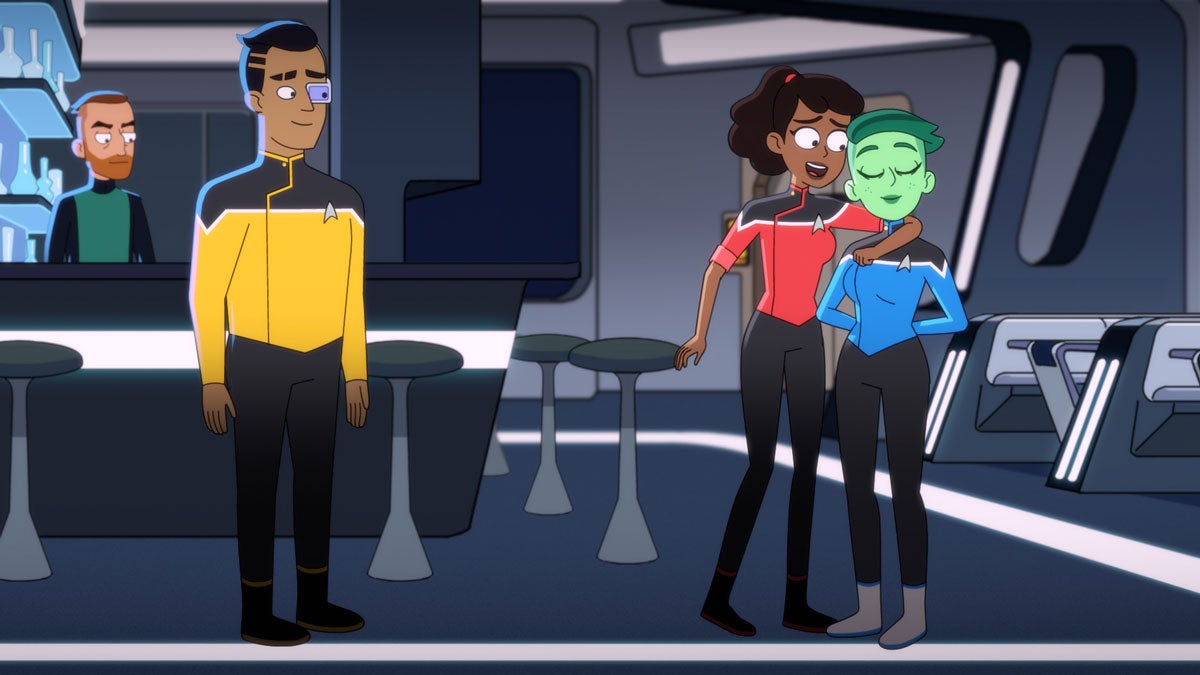
It continues to be a shame that Lower Decks hasn’t found the time to do this sort of work with its other Lower Deckers, but at least we’re set up for more interesting conflicts (between some of them) as we head into the season finale. Especially now that Boimler has found out that Mariner is the captain’s daughter, information that seems to have, at least for now, irreconcilably broken both his capacity to kiss Captain Freeman’s ass and maybe fundamentally changed his relationship with his friend.
For now though, Lower Decks’ most compelling character has found some peace within herself and her place in Starfleet; now she just has to see what that means for her relationship with her closest friends. All it took was a brief trip to the other side of Star Trek.
For more, make sure you’re following us on our Instagram @io9dotcom.


